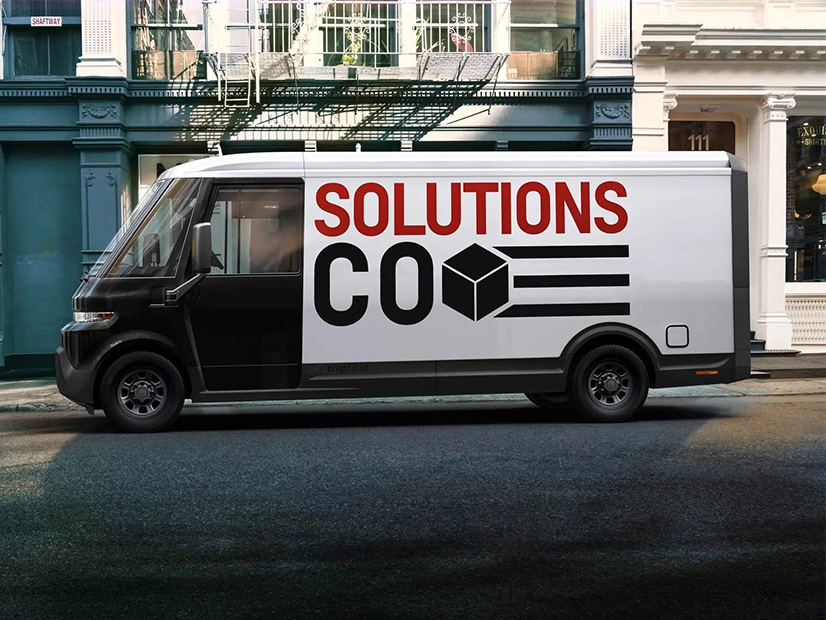Electrification of U.S. trucking is going to happen whether or not Congress finds a way to help fund and expedite the transition as part of the Biden administration’s effort to address climate change.
While congressional Democrats struggle to keep moderates on board a $3.5 trillion, 10-year budget plan as a companion to the $1 trillion infrastructure bill decarbonizing the U.S. economy, at least one company among the nation’s trucking fleets is preparing to ditch diesel for electrons.
FedEx (NYSE:FDX) is expecting to receive the first order of EV600 electric delivery vans from General Motors’ (NYSE:GM) BrightDrop subsidiary in December, Russell Musgrove, managing director of global vehicles for FedEx Express, said in a recent webinar sponsored by the Environmental Defense Fund and produced by The Hill.
Those trucks, all headed to California where the company has recently completed the installation of 1,000 charging stations, are just the beginning, he said.
FedEx has been interested in electrification for more than a decade — ahead of the developments in technology and manufacturing that has finally made the switch possible — and is eager to switch, Musgrove said. “We’re at the point where we’re ready to scale. The good news is we’re the perfect type of fleet to be able to do that home delivery last mile.”
The company’s goal is to make 50% of local deliveries with electric vehicles by 2025 and 100% by 2030. It is planning to run a fully electric trucking fleet — not just local pickup and deliveries — by 2040. And it expects to have a wide choice of electric trucks to choose from.
“All of the [truck manufacturers] have made the commitment. They’ve finally accepted the reality that electricity is going to disrupt their industry, and that they’re going to invest literally billions of dollars into development of these new products,” Musgrove said.
This has happened globally as well. For example, FedEx is buying electric trucks from a Chinese maker for its delivery fleets there, where government policies have pushed the industry toward electrification.
With congressional negotiations dragging on and no consistent federal policy to support electrification, FedEx has another concern: the strength of the thousands of local electrical distribution systems it will need to use.
IKEA, which is not a delivery service, has worked with electric rental truck services to enable smaller delivery companies to run electric trucks in New York City.
“We’re providing a rental fleet that contractors can have access to on a very short-term basis, a day or week rental, without having to get in involved in a long term financial entanglement,” said Steven Moelk, IKEA’s project implementation manager of zero-emission delivery initiatives.
IKEA plans to “light up” its stores to enable fleet charging, he said, “with the hope that eventually our service providers themselves will get on board.”
Looking ahead, Moelk said he thinks truck makers are poised to begin offering a wide choice of electric trucks.
“I’m very optimistic to see our large domestic automobile manufacturers get into the electric truck market, whether its BrightDrop or the Ford E-Transit [or] a lot of other smaller [original equipment manufacturers], some of whom we’ve partnered with already. I think the technology is good, and we’re moving forward,” he said.
The transition could be accelerated by policy changes at the federal level, said Jimmy O’Dea, deputy director of trucks at CALSTART, an organization of more than 250 companies that lobbies for clean transportation technologies and policies.
There are currently no federal rebates for companies that buy electric trucks even though there have been consumer rebates for hybrids and EVs for some time, O’Dea said. He said that is one of the topics under discussion in the budget reconciliation process.
“There are proposals for electric truck incentives at the federal level, which would be a huge win for this industry to get off the ground,” he said.
Musgrove said the “endgame” from the trucking fleet perspective is “to get the total cost of ownership [of an electric truck, including fuel and maintenance] to be equal to diesel equivalent or gas equivalent.”
“It’s just a very efficient fuel,” he said of electricity. “It’s been around for 100 years. And now it’s back at the forefront … based on changes in battery technologies. It’s a hard sell, but in reality, it’s the right decision for fleets to make from a financial perspective, with a huge benefit.”



